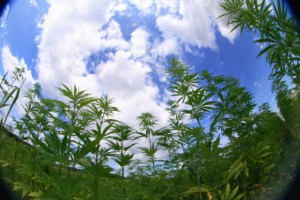Floridians wait for low-THC cannabis treatment due to health department’s failings

By William Patrick | Florida Watchdog
TALLAHASSEE, Fla. — Charlotte’s Web isn’t just an adorable children’s classic. It’s also the name of a compassionate medical marijuana law passed by the Republican-dominated Florida Legislature earlier this year that’s having trouble getting off the ground.
CHARLOTTE’S WEB: Due to administrative issues at the Florida Department of Health, it’s unclear whether low-THC medical cannabis will be available for ailing Floridians by the Jan. 1, 2015 deadline.
Unlike the medical marijuana ballot amendment that failed to meet voter approval last month during the mid-term elections, Charlotte’s Web doesn’t involve smoking or getting high. Only 16 of 160 state legislators voted against it.
But due to administrative failings at the Florida Department of Health, thousands of patients in need of relief could be forced to wait past the Jan. 1, 2015, implementation deadline.
Named for Charlotte Figi, a 5-year-old girl who experienced fewer epileptic seizures after being treated with a low-THC marijuana oil. THC is the euphoric ingredient in pot.
“It’s unlike anything that I, in my 30 years of medical practice, have experienced,” said Dr. Alan Shackelford, a leading medical marijuana-endorsing physician based in Colorado.
Figi suffers from Dravet Syndrome, a rare form of intractable epilepsy that begins in infancy, has limited treatment options and requires constant care. After being treated with marijuana oil, her seizures dropped from a reported 300 a week to just one a week.
The Epilepsy Foundation of Florida estimates 375,000 Floridians suffer from epilepsy, many of whom are children. Other debilitating ailments eligible for treatment under Charlotte’s Web include cancer, Parkinson’s disease, multiple sclerosis and additional conditions involving chronic symptoms related to seizures or muscle spasms.
But turning over the implementation of Charlotte’s Web to the Department of Health has been anything but smooth.
An administrative law judge invalidated FDOH’s implementing rules last month, stating the department acted outside of its authority when determining who could supply the low-THC cannabis.
“In attempting to codify the above-referenced provisions the department has taken upon itself to implement policies which the Legislature has expressly rejected, or for which the Legislature chose not to grant the Department authority,” the ruling concludes.
Rather than identifying who could best provide the medical product, FDOH constructed an arbitrary lottery system based more on geography than competency. Several qualified growers filed suit along with the Florida Medical Cannabis Association.
“Assuring the dependable delivery of consistently high-quality, low-THC medicine is too important to be left to chance. Rather than minimally qualified applicants, citizens of the State of Florida, including sick and vulnerable children, deserve approval of the most qualified growers, processors and dispensers of low-THC cannabis,” the decision states.
Seen critically by some as a political workaround to simply legalizing medical marijuana, the Charlotte’s Web legislation is strikingly narrow in scope.
- Only five growers, or dispensaries, are allowed to participate.
- Each grower must have 30 years of uninterrupted business operations.
- A $5 million performance bond must be posted.
- Each grower must be certified to produce at least 400,000 plants.
Additionally, an amendment to the legislation creates criminal penalties for any physician that prescribes low-THC cannabis to patients that don’t meet a qualified medical condition.
Floridamarijuanainfo.org, a nonpartisan group that doesn’t take a position for or against medical marijuana, says the small number of growers creates a “monopoly” for the five chosen businesses, thus “severely limiting competition and free enterprise.”
“The bill only allocates $1 million to oversee the entire ‘cannabis’ program, leaving room for potential corruption and mismanagement,” the nonpartisan website adds.
Watchdog.org contacted the Florida Department of Health for comment, but didn’t receive a return response.
Whether the FDOH will meet its deadline in three weeks is unclear.
Even so, according to the SaintPetersBlog.com, only nine physicians are currently authorized to recommend low-THC marijuana extracts under the Charlotte’s Web law.







